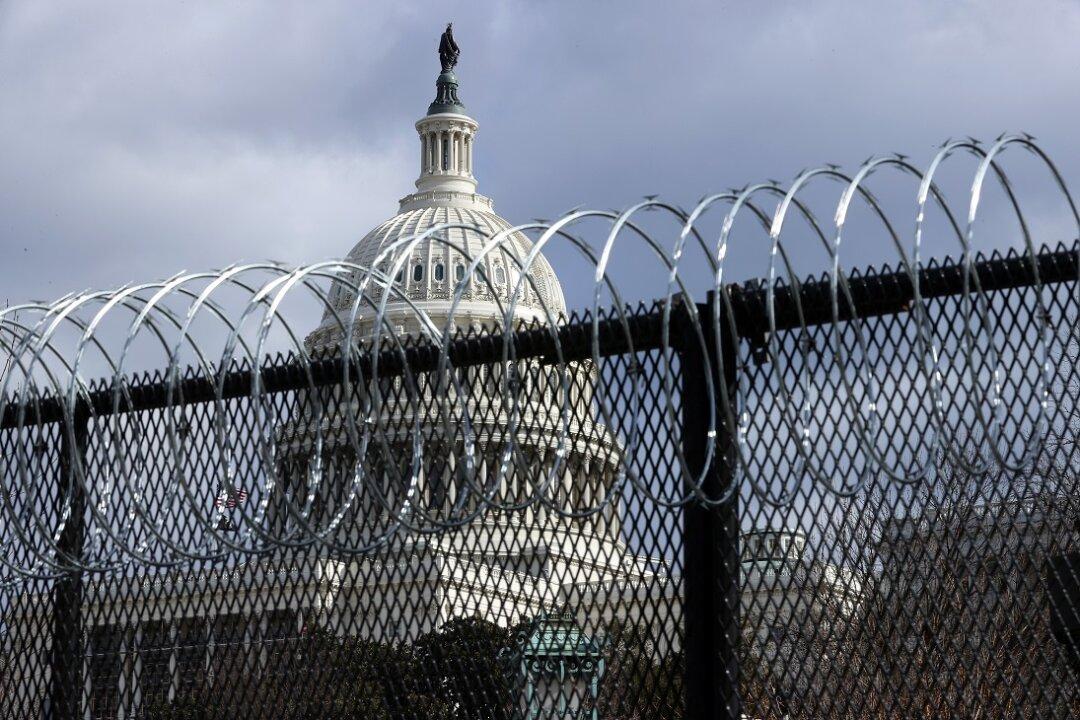Acting House of Representatives Sergeant-at-Arms Timothy Blodgett says parts of the razor-wire-topped fence erected around the U.S. Capitol complex following the Jan. 6 incursion will come down soon.
Blodgett on March 15 said that parts of the fence that are manned by about 2,500 National Guard troops and backed by dozens of heavy military vehicles will be revised or taken down completely. The Guard contingent also will begin to return to their home bases in coming weeks.





